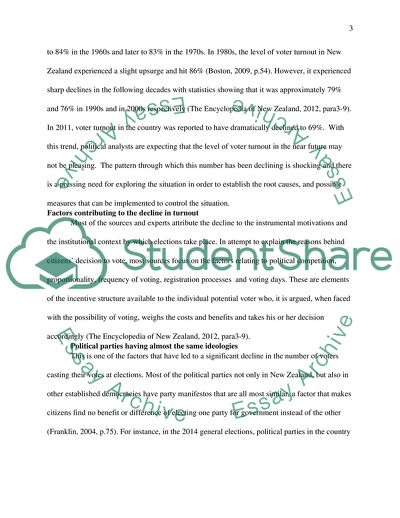Cite this document
(New Zealand Voter Turnout Case Study Example | Topics and Well Written Essays - 1750 words, n.d.)
New Zealand Voter Turnout Case Study Example | Topics and Well Written Essays - 1750 words. https://studentshare.org/social-science/1839111-new-zealand-politics
New Zealand Voter Turnout Case Study Example | Topics and Well Written Essays - 1750 words. https://studentshare.org/social-science/1839111-new-zealand-politics
(New Zealand Voter Turnout Case Study Example | Topics and Well Written Essays - 1750 Words)
New Zealand Voter Turnout Case Study Example | Topics and Well Written Essays - 1750 Words. https://studentshare.org/social-science/1839111-new-zealand-politics.
New Zealand Voter Turnout Case Study Example | Topics and Well Written Essays - 1750 Words. https://studentshare.org/social-science/1839111-new-zealand-politics.
“New Zealand Voter Turnout Case Study Example | Topics and Well Written Essays - 1750 Words”. https://studentshare.org/social-science/1839111-new-zealand-politics.


